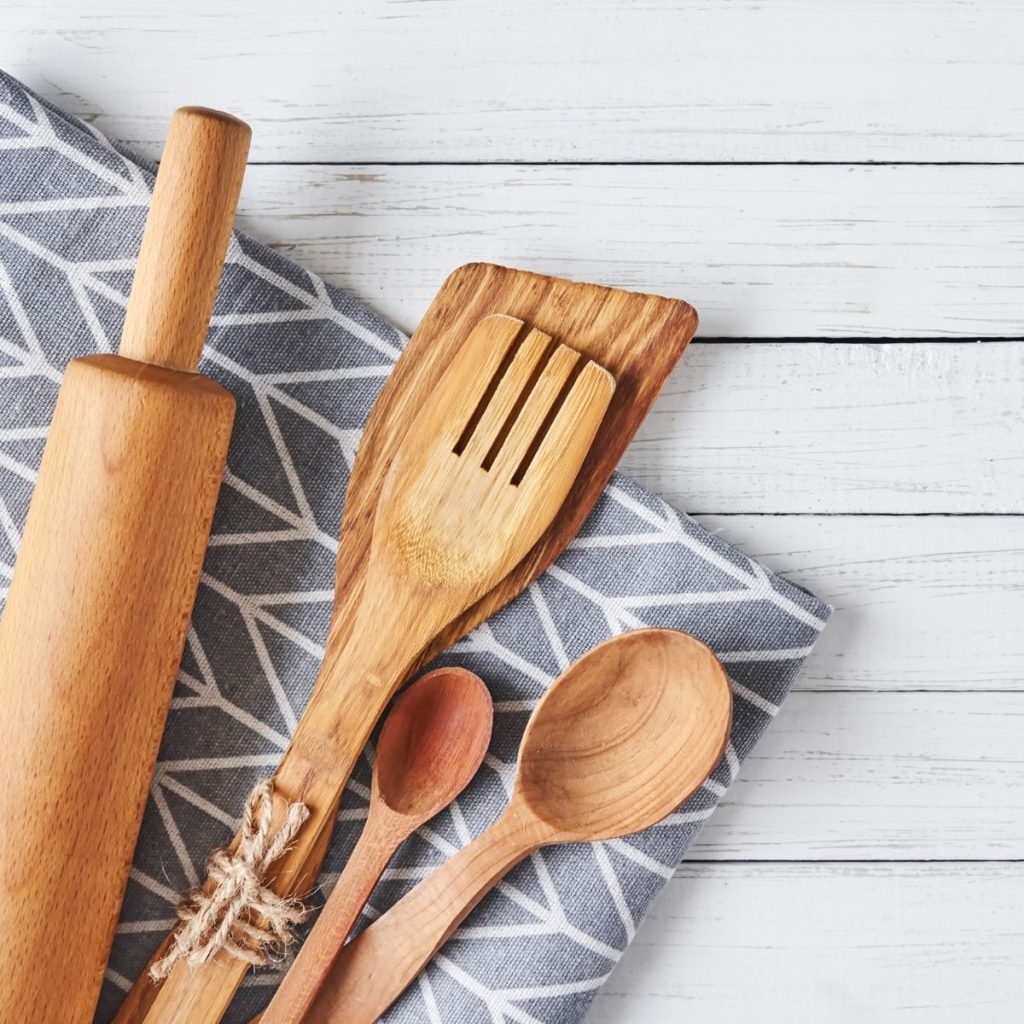
Author: Umi Fatimah
Wooden spatulas are kitchen utensils that are quite popular because they are resistant to high heat and are more environmentally friendly. Unlike plastic kitchen utensils, wooden kitchen utensils are also safe and hygienic to use. Meanwhile, plastic materials have the potential to release dangerous substances into food.
However, wooden spatulas and other wooden kitchen utensils require special care to prevent the growth of mold and bacteria, so they can still be used for a long time.
Nah, Here are some effective ways to care for wooden spatulas and other wooden kitchen utensils so they are free from mold and bacteria:
1. Don’t Soak Wood Stiles
Due to the porous nature of wood, you cannot soak a wooden spatula in water for a long time. Prolonged exposure to water can cause the wood to warp.
In addition, soaking a wooden spatula can cause the loss of natural oils that help protect and preserve the wood, making it easier for mold to grow. So, if your wooden spatula is stained or dirty, you should wash it as soon as possible to prevent the stain from sticking.
2. Wash until clean
After using a wooden spatula, make sure you wash it with a mixture of soap and warm water. Use mild dish soap and a soft sponge to remove food debris stuck to the wooden spatula. Make sure to clean both sides of the spatula and rinse thoroughly.
3. Store Wooden Spatulas Properly
Caring for wooden spatulas is not only limited to how to wash them, you know. You should also store the wooden spatula in a dry and cool place, away from moisture.
This is because exposure to extreme temperatures and moisture can cause wooden spatulas to expand or shrink, which can cause cracking or warping. So keep wooden spatulas away from heat sources, such as stoves, ovens and direct sunlight.
4. Dry the Wooden Spatula Properly
Moisture is the main enemy of wooden tools. So, after washing the wooden spatula, dry the spatula immediately with a clean rag or cloth to prevent moisture from accumulating on the wood and causing mold.
Avoid leaving it in a wet dish rack or dishwasher because it can increase the growth of bacteria and mold.
5. Brush a Wooden Spatula with Oil
If the wooden spatula or cutting board in your house starts to look dry or doesn’t feel smooth, brush it periodically (at least once a month) with coconut oil.
Don’t use food-based oils, such as vegetable oil or olive oil, because these types of oils can make wooden cookware smell rancid.
The oil should be applied to a clean, dry wooden surface. You can apply oil to the wooden surface using a cloth or brush.
Make sure you spread the oil evenly over the entire surface of the wood. Then, let the oil soak until the wood dries. Once dry, you can apply a second coat. Next, let wooden spatulas and other wooden cookware dry completely before using.
6. Wash with Lemon and Baking Soda
Cooking utensils made of wood, including wooden spatulas, can absorb odors from foods with strong aromas (such as garlic or oil), and can transfer these odors and flavors to other foods.
To reduce the smell, wash a wooden spatula with lemon juice and baking soda. This method not only reduces unpleasant odors from food, but also helps remove black stains on wooden cooking utensils.
7. Check for Damage
Check wooden spatulas and other wooden cooking utensils regularly. For example, whether there are cracks or chips. If you see any damage, you should replace the wooden spatula because it can harbor bacteria and is difficult to clean thoroughly.
By following these simple tips, you can keep wooden spatulas free from mold and bacteria, ensuring that the cookware remains long-lasting and safe to use in the kitchen.

 Atsarina Luthfiyyah (Senior Editor)
Atsarina Luthfiyyah (Senior Editor)
Has educational experience in the fields of Culinary and Journalism. His hobbies are writing, traveling and cooking. Masters in Communication Sciences at Gadjah Mada University
Contact Us at [email protected]

